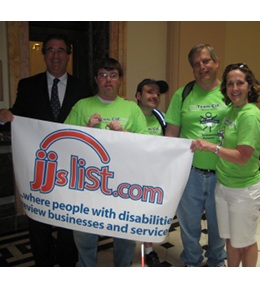Want to unleash something fierce? Call a North Shore woman a bad mother.
Consider the case of JJ Hanley of Wilmette. Concerned about her 3-year-old son’s lack of language development, she took him to the pediatrician in 1996. Hanley remembers the doctors saying that “I was overbearing and neurotic, and I needed to get off [my son’s] back.”
Nine months later, her son was diagnosed with pervasive developmental disorder, a mild form of autism.
And Hanley, now 49, quickly discovered that she was not alone in taking the blame. While researching autism she found a league of mothers who were blamed for their children’s symptoms, such as self-isolation and speech difficulty, from 1950s through the ’70s—well before autism was identified as a neurological condition.
Doctors told mothers that their unemotional coldness was causing their children to become pariahs, and so they were dubbed “refrigerator mothers.”
The term became the title of the 2002 PBS documentary that Hanley produced in conjunction with Chicago’s Kartemquin Films. It was broadcast nationally and won 12 awards, including the Grand Jury Prizes at the Florida, Indiana and Sedona Film Festivals, the National Media Award from the Autism Society of America and First Prize in the National Council on Family Relations Media Awards.
 The painful and trying experience with her son led Hanley, a former securities trader and freelance media producer, to find her true passion: being an advocate for people with disabilities. And she’s following that passion with her latest venture, JJ’s List, a nonprofit that empowers people with disabilities to be their own advocates and encourages businesses to reach out to these individuals.
The painful and trying experience with her son led Hanley, a former securities trader and freelance media producer, to find her true passion: being an advocate for people with disabilities. And she’s following that passion with her latest venture, JJ’s List, a nonprofit that empowers people with disabilities to be their own advocates and encourages businesses to reach out to these individuals.
“Disability is natural—it could happen to all of us at any time,” Hanley says. “It behooves us to understand a little more about how to interact with it.”
And it’s imperative that we do so: People with disabilities make up 18 percent of the U.S. population—almost 1 in 5 Americans—and the fastest-growing minority group. That’s $175 billion a year in discretionary spending power, more than twice the spending power of our nation’s teenagers.
While schools are required to integrate students with disabilities as inclusively as possible, “a wasteland” awaits these individuals after high school, Hanley says. As adults, they have almost no regular access to community living, work and fun.
And Illinois is not exactly the ideal place for people with disabilities to live: According to one study, our state ranks 51st in the nation—behind even the District of Columbia—in providing support for people with developmental disabilities.
Like other consumer reviews sites such as Angie’s List and Yelp, JJ’s List, which went live in March, lets people with disabilities rate businesses on whether or not they provide flexible, welcome and respectful service and/or a workplace to individuals with disabilities.
More than 250 Chicagoland businesses have been reviewed so far by more than 200 users, and every business that’s reviewed is contacted by JJ’s List, which also offers free disability awareness workshops to businesses, schools and other groups. Businesses that demonstrate a commitment to disability-aware practices become “Bridge Builders” (for free), receiving a full listing and special recognition on the site.
“We’re all about building bridges between people and the community so that [people with disabilities] can live and work,” says Hanley, whose 100-percent-volunteer-run business is based out of her basement.
And the nonprofit hits 2 birds with 1 stone. While helping fully integrate people with disabilities into the community, it also helps them use the power of the Internet, which can be a huge barrier: Almost three-quarters of Americans with disabilities don’t go online, and 28 percent of them say the Internet is not accessible because of their disability. Many people with disabilities don’t even have e-mail addresses.
Hanley and her team regularly offer free technology skills workshops in the community and in schools. They’re about to partner with the North Suburban Special Education District (NSSED) to train teachers on how to use JJ’s List to teach both technology and self-advocacy skills.
There’s a lot that every one of us can learn from what Hanley is teaching businesses and other groups. If you need a little coaching on how to interact with people with disabilities, check out her top 10 tips sheet.
Her advice? Don’t be afraid to interact and don’t worry if you make a mistake. “Most people really appreciate that you’re trying,” she says.

